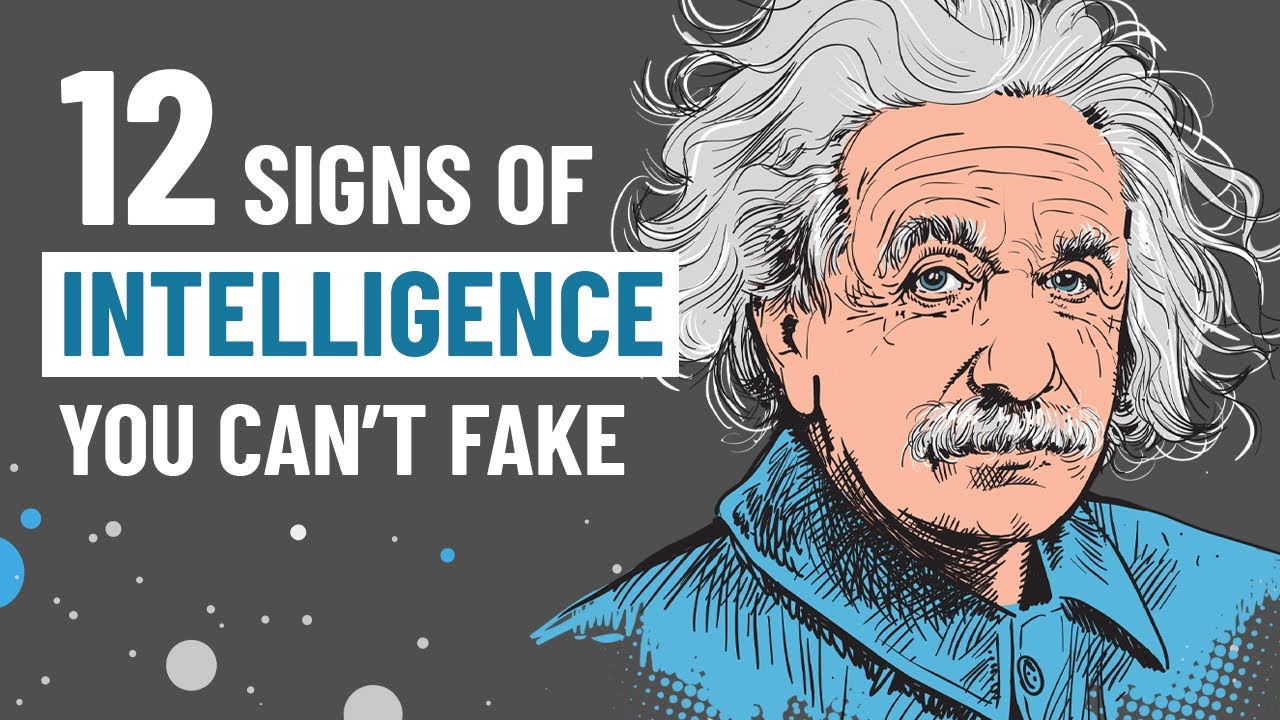How Does A Person With High Intelligence Think? The Psychology Of High Intelligence
How does a person with high intelligence think? Intelligence is a complex and multi-dimensional concept that includes a wide range of cognitive skills, such as being able to solve problems, think critically, be creative, and reason about things that aren't concrete.
Author:Camilo WoodReviewer:Dexter CookeMar 20, 20234.1K Shares375.6K Views

How does a person with high intelligence think? Intelligence is a complex and multi-dimensional concept that encompasses a range of cognitive abilities, including problem-solving, critical thinking, creativity, and abstract reasoning.
While there is no single definition of intelligence, research suggests that individuals with high intelligence tend to exhibit distinct patterns of thinking and behavior.
How Does A Person With High Intelligence Think?
Fluid Vs. Crystallized Intelligence
One of the key distinctions in the study of intelligence is between fluid and crystallized intelligence. Fluid intelligence refers to a person's ability to think abstractly, reason logically, and solve novel problems, while crystallized intelligence refers to the accumulation of knowledge and skills over time.
Individuals with high fluid intelligence tend to excel at tasks that require flexible thinking and adaptation to new situations. They are able to analyze complex information, identify patterns, and generate creative solutions to problems.
In contrast, individuals with high crystallized intelligence tend to be knowledgeable in specific domains and perform well on tasks that require recall and application of previously learned information.
Cognitive Processes
In addition to fluid and crystallized intelligence, individuals with high intelligence tend to exhibit other cognitive processes that set them apart from those with average or low intelligence. These include:
- Metacognition:the ability to reflect on and monitor one's own thinking processes
- Divergent thinking:the ability to generate multiple solutions or possibilities for a given problem
- Critical thinking:the ability to evaluate information and make informed judgments based on evidence and reasoning
- Inferential thinking:the ability to draw logical conclusions based on available information
Personality Traits
Research has also identified certain personality traits that are associated with high intelligence. These include:
- Openness to experience:a willingness to explore new ideas and perspectives
- Intellectual curiosity:a strong desire to learn and acquire knowledge
- Creativity:the ability to generate new and innovative ideas
- Persistence:a willingness to persevere in the face of challenges and setbacks
Key Characteristics Of How A Person With High Intelligence Thinks
Strong Analytical Skills
One of the hallmarks of high intelligence is the ability to analyze complex information and identify patterns.
Individuals with high intelligence tend to be able to see connections and relationships between different pieces of information, and are often skilled at breaking down complex problems into smaller, more manageable parts.
Creative Problem-Solving
In addition to strong analytical skills, individuals with high intelligence also tend to exhibit strong problem-solving abilities.
They are often able to generate creative solutions to problems and are not afraid to take risks or think outside the box.
This ability to approach problems from a fresh perspective can be a valuable asset in many different settings, from the workplace to everyday life.
Metacognition
Metacognition refers to the ability to reflect on and monitor one's own thinking processes.
Individuals with high intelligence tend to be self-aware and reflective, and are able to evaluate their own strengths and weaknesses when it comes to cognitive tasks.
This self-awareness can be helpful in identifying areas for improvement and developing effective strategies for learning and problem-solving.
Divergent Thinking
Divergent thinking refers to the ability to generate multiple solutions or possibilities for a given problem. This type of thinking is often associated with creativity and innovation and is a key characteristic of high intelligence.
Individuals with high intelligence tend to be open-minded and curious, and are not afraid to explore new ideas or ways of thinking.
Rational Decision-Making
Individuals with high intelligence tend to be skilled at making rational, evidence-based decisions. They are able to evaluate information objectively and make judgments based on logic and reasoning, rather than emotions or biases.
While this does not mean that individuals with high intelligence always make perfect decisions, it does mean that they are able to make informed and thoughtful choices in a wide range of situations.

12 Genuine Signs of Intelligence You Can't Fake
How To Increase Intelligence?
Intelligence is a complex trait that is influenced by both genetic and environmental factors. While it is not possible to significantly increase one's IQ, there are several ways to enhance cognitive abilities and improve overall mental performance.
Here are some strategies that may help to increase intelligence:
- Engage in regular aerobic exercise: Regular exercise has been shown to promote the growth of new brain cells and improve cognitive function.
- Read and learn new things:Intellectual stimulation, such as reading books or learning a new skill, can improve brain function and promote the growth of new neural connections.
- Practice mindfulness meditation:Research suggests that regular mindfulness meditation can enhance cognitive performance, including attention, memory, and decision-making.
- Get enough sleep: Sleep is essential for consolidating memories and facilitating learning. Aim for 7-8 hours of sleep per night.
- Play brain-training games:Games that challenge cognitive skills, such as memory, attention, and problem-solving, may help to improve cognitive abilities over time.
It's important to note that while these strategies may help to enhance cognitive function, they are not a guaranteed way to increase intelligence.
Additionally, it's important to maintain a healthy lifestyle overall to support brain health, such as maintaining a balanced diet, reducing stress, and avoiding harmful substances like drugs and alcohol.
What Is The Difference Between High Intelligence And Genius?
The terms "high intelligence" and "genius" are often used interchangeably, but they refer to slightly different concepts.
High intelligence typically refers to an individual's cognitive ability, as measured by standardized IQ tests or other measures of cognitive aptitude. Individuals with high intelligence tend to excel in areas such as problem-solving, critical thinking, and abstract reasoning.
Genius, on the other hand, is a term used to describe individuals with exceptional intellectual or creative abilities. While intelligence is an important component of genius, it also involves a high level of creativity and the ability to think outside the box.
In general, individuals with high intelligence may be able to excel in academic or professional pursuits, while those with genius-level abilities may be able to make groundbreaking contributions to their field or society as a whole.
However, it's worth noting that intelligence and genius are complex, multifaceted concepts that cannot be fully captured by a single definition or measurement.
How Do Highly Intelligent People Solve Problems?
Highly intelligent people tend to approach problem-solving in a systematic and analytical manner. They may use a combination of logic, reasoning, creativity, and intuition to arrive at solutions.
Some common strategies that highly intelligent people may use to solve problems include:
- Breaking down complex problems into smaller, more manageable parts
- Identifying patterns or connections between seemingly disparate pieces of information
- Generating multiple possible solutions and weighing the pros and cons of each
- Using analogies or metaphors to help explain complex concepts or ideas
- Visualizing problems or solutions in their mind's eye
- Seeking out feedback or input from others to gain new perspectives or insights.
In addition, highly intelligent people may also be more open-minded and flexible in their thinking, willing to consider multiple viewpoints and adjust their approach as needed.
They may also be more persistent in their problem-solving efforts, willing to experiment and try new approaches until they find a solution that works.
People Also Ask
How Does High Intelligence Affect Problem-solving Skills?
Individuals with high intelligence tend to have strong problem-solving skills, as they are able to analyze complex information, identify patterns, and generate creative solutions to problems.
What Role Does Metacognition Play In High Intelligence?
Metacognition, or the ability to reflect on and monitor one's own thinking processes, is a key component of high intelligence.
Individuals with high intelligence are often aware of their own cognitive strengths and weaknesses and are able to adjust their thinking strategies accordingly.
Can High Intelligence Be Learned Or Developed Over Time?
While some aspects of intelligence are thought to be largely determined by genetics, research suggests that certain cognitive processes and personality traits associated with high intelligence can be learned and developed over time.
What Is The Relationship Between High Intelligence And Creativity?
High intelligence is often associated with creativity, as individuals with high intelligence tend to exhibit divergent thinking, or the ability to generate multiple solutions or possibilities for a given problem.
How Does High Intelligence Impact Decision-making?
Individuals with high intelligence tend to make more informed and rational decisions, as they are able to evaluate information and make judgments based on evidence and reasoning.
However, high intelligence is not a guarantee of good decision-making, as other factors such as emotions and biases can also play a role.
Final Thought
How does a person with high intelligence think? While intelligence is a complex and multi-dimensional concept, research has identified several cognitive processes and personality traits that are associated with high intelligence.
Individuals with high intelligence tend to exhibit fluid and flexible thinking, metacognitive awareness, and openness to new experiences and ideas.
Understanding these patterns of thinking can help individuals develop and cultivate their own cognitive abilities, and appreciate the unique strengths and perspectives of those with high intelligence.

Camilo Wood
Author
Camilo Wood has over two decades of experience as a writer and journalist, specializing in finance and economics. With a degree in Economics and a background in financial research and analysis, Camilo brings a wealth of knowledge and expertise to his writing.
Throughout his career, Camilo has contributed to numerous publications, covering a wide range of topics such as global economic trends, investment strategies, and market analysis. His articles are recognized for their insightful analysis and clear explanations, making complex financial concepts accessible to readers.
Camilo's experience includes working in roles related to financial reporting, analysis, and commentary, allowing him to provide readers with accurate and trustworthy information. His dedication to journalistic integrity and commitment to delivering high-quality content make him a trusted voice in the fields of finance and journalism.

Dexter Cooke
Reviewer
Dexter Cooke is an economist, marketing strategist, and orthopedic surgeon with over 20 years of experience crafting compelling narratives that resonate worldwide.
He holds a Journalism degree from Columbia University, an Economics background from Yale University, and a medical degree with a postdoctoral fellowship in orthopedic medicine from the Medical University of South Carolina.
Dexter’s insights into media, economics, and marketing shine through his prolific contributions to respected publications and advisory roles for influential organizations.
As an orthopedic surgeon specializing in minimally invasive knee replacement surgery and laparoscopic procedures, Dexter prioritizes patient care above all.
Outside his professional pursuits, Dexter enjoys collecting vintage watches, studying ancient civilizations, learning about astronomy, and participating in charity runs.
Latest Articles
Popular Articles